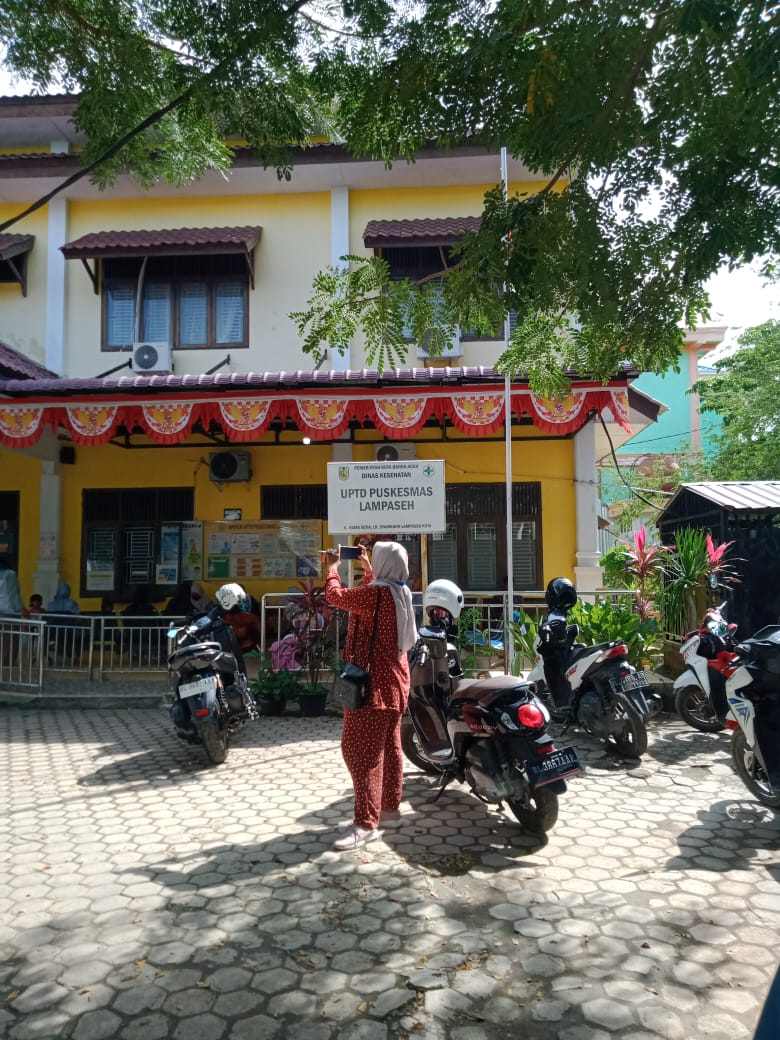Mapping of public health facilities supporting Polio Eradication in Indonesia

The project in Indonesia has transformed lives by training over 90 individuals and mapping 900+ kilometers of roads, 90,000 buildings, and targeting 200+ households for polio immunization. This data enabled the Indonesian Red Cross to analyze polio immunization progress and prioritize health promotion efforts. This has empowered communities and improved access to essential services, making a tangible difference in people's daily lives.
To prepare for and to prevent Polio outbreaks in Indonesia, Palang Merah Indonesia (PMI) led the Polio Preparedness Program. PMI faced challenges as health staff urgently needed to increase awareness on the importance of Polio immunization in the regions. However, there was limited spatial data and maps helpful for decision-making on healthcare planning and implementation.
In 2018, Southeast Asia was rattled by the emergence of Polio cases, including one in Papua province, Indonesia. The Polio Preparedness Program, initiated by Indonesia Red Cross/Palang Merah Indonesia (PMI), strives to boost Polio immunization coverage with backing from USAID through the International Federation of Red Cross and Red Crescent (IFRC).
The Polio Preparedness Program set out to collect data on the target areas related to Polio and its challenges, completing an initial baseline survey involving over 1000 local respondents from 36 villages across 9 districts. The findings revealed that 41% of respondents lacked information about Polio immunization in the last six months. Furthermore, 30% of respondents in Aceh declined vaccination for their children, citing personal perceptions of safety or halal concerns.

To support this program, supplementary data in the form of maps is crucial. This aids in more focused interventions, assessing accessibility to vaccination centers, promoting health in targeted villages, and monitoring the ongoing immunization progress.
A critical challenge was the absence of spatial data, particularly at the village level in Banda Aceh and Bireuen. This encompassed data on buildings, pathways, and amenities, including healthcare facilities. In contrast to Java, the growth of OpenStreetMap (OSM) data in Sumatra, as indicated by OSM building statistics, has not been as extensive. Additionally, PMI, playing an active role in the community (specifically PMI Banda Aceh and Bireuen), had limited knowledge of participatory mapping.
To tackle these challenges, the “Mapping of Public Health Facilities and Children’s Polio Immunization Status in Banda Aceh City and Bireun District, Indonesia’’ could provide a solution. This project aims to address the lack of spatial data and maps as decision-making tools for health staff and for the distribution of immunization services.
Approach and Implementation
The project followed a dual-phase approach, combining online and in-person training activities.
Online training sessions were designed to equip beginner users with fundamental OpenStreetMap (OSM) skills and to conduct Mapathons aimed at mapping unmapped buildings in the Bireuen district. Conversely, in-person training sessions were conducted in Banda Aceh and Bireuen, focusing on introducing OSM and conducting field surveys to gather essential data in targeted villages.
During the online phase, participants engaged in Mapathons, contributing to the mapping of previously unmapped buildings in the Bireuen district. This collective effort expanded the spatial data available for the region, enhancing the accuracy and completeness of maps crucial for effective healthcare planning and implementation.
In the in-person training phase, participants received hands-on training in OSM and conducted field surveys to collect additional data, including information on buildings, pathways, and healthcare facilities.
This field data complemented the online mapping efforts, providing detailed insights into the local infrastructure and facilitating targeted interventions to improve Polio immunization coverage and overall healthcare access in the region.

Impact and Outcomes
Grantees growth and development
The health facility coverage analysis map can be used to prioritize and determine areas for mobilizing health promotion efforts, especially targeted towards mothers with children.
Sheila highlights,
“Personally, the SLSI project adds hands-on project management experience, reinforcing my role as an Information Management (IM) officer in the public health program. During implementation, the health coordinator recognized my efforts, allowing me to travel to Aceh without taking additional leaves. Also, I had a chance to directly collaborate with village volunteers and expand my professional network in Aceh.”
Data Use by Indonesian Red Cross
The project has the potential to be a game-changer for health outcomes in the villages. PMI utilized the gathered data to assess polio immunization progress, providing valuable insights for program evaluation and reporting to donors upon concluding the Polio Preparedness Program in 2023.
Moreover, the project’s success has paved the way for broader applications, with the Indonesian Red Cross (PMI) utilizing the maps as foundational data for interventions beyond polio preparedness, including disaster risk mapping initiatives.

As the project progresses, the pivotal role of women in its success becomes increasingly apparent. Their remarkable skill and dedication have been instrumental thus far, and their ongoing contributions will be vital in advancing health outcomes for the Aceh community.
Impact in numbers
- 90,334 buildings mapped
- 961 km roads added
- 82 amenities mapped (including 26 healthcare facilities)
The success of this project was highlighted by the strong network of partnerships and communities. Establishing strong connections and collaborations within the community is essential for smooth program implementation.
The Indonesian Red Cross (PMI) branches in Banda Aceh city and Bireuen district were invaluable partners, greatly facilitating activities in each region. PMI’s close ties to the local community and their extensive volunteer network made it significantly easier to engage with the local community.


